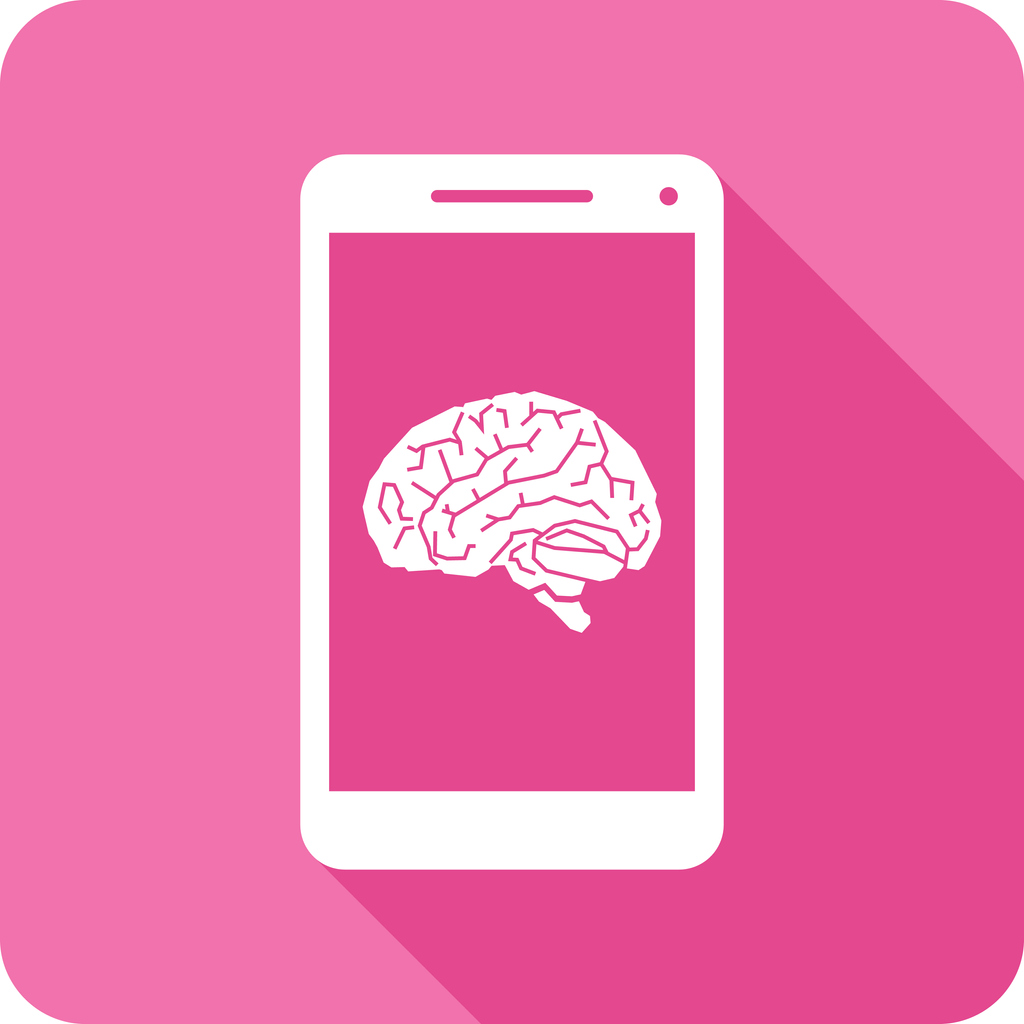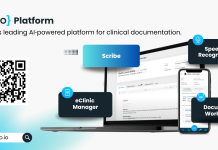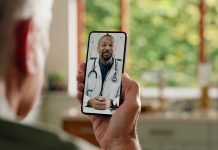Severe pressures are being experienced by hospitals across Europe, and in the UK, the NHS is looking at ways to free up hospital beds. Could digital health apps be the answer?
What if technology could also be used to stop people coming into hospitals in the first place? Both the NHS Confederation and the Secretary of State for Health, Steve Barclay, have said that tackling preventable admissions should be a key strand of a new approach to urgent and emergency care – and that up to 20% of hospital admissions are avoidable with the right care in place.
Six hospitals have been nominated as ‘Discharge Frontrunners’, and they will lead the way in exploring initiatives to free up beds. In tandem, virtual wards are a great example of how technology has been introduced to speed up discharge and treat patients in their own homes, with growing evidence that these are safe and efficient alternatives to hospital care.

So, can technology help us reimagine urgent and emergency care?
In the view of our researchers at ORCHA, the answer is a resounding ‘yes’ – the digital health apps on our mobile phones and PCs could be helping us self-manage our health.
Our researchers began by examining the hundred most common diagnoses for urgent and emergency care admissions in 2021-22. Whilst many of these were unavoidable and unpredictable – such as with wounds and fractures – others were grouped into areas where health apps can be used as a supporting measure to relieve pressure on these pathways.
The main conditions we identified were musculoskeletal, long-term conditions, preventable acute episodes and mental health. These conditions represent up to 35% of diagnoses. The idea is to support patients before an urgent care visit becomes necessary and then to help prevent readmissions.
The misuse of inhalers by patients with the long-term condition COPD is a source of many preventable acute episodes. In fact, ninety per cent of patients with COPD have problems with inhalers. Health app MyCOPD has short training videos to help tackle this and research shows that the odds of a critical inhaler error are 70% lower when patients use this app. Only 12.8% of patients admitted to urgent and emergency care with COPD are getting access to pulmonary rehab due to staffing issues – but when patients use MyCOPD they have remote access to pulmonary rehab, cutting re-admission rates by 50%.
For patients with musculoskeletal conditions, managing pain can become a focus of their lives. Research conducted with the chronic pain service of Buckinghamshire Healthcare NHS Trust measured the outcomes for chronic pain patients enrolled on the Pathway Through Pain web-based course. The results indicated significantly improved outcomes for chronic pain patients, reducing the need for urgent care, including a 24% reduction of daily problems for the patient and a £240 cost saving per patient for the system.
Digital health apps and the benefits for patient mental health

Mental health patients are also benefiting from digital health apps, reducing the need for admissions. Research found a significant reduction in PHQ-9 Depression Test Questionnaire scores when patients used Wysa, an app with guides, exercises to help with stress and depression and an artificial intelligence chatbot. These findings support recent studies suggesting that a therapeutic relationship can be established between humans and conversational agents in the context of mental health
In these published examples, digital health apps and web apps have played a notable role in relieving hospital pressures. There also appears to be an appetite amongst the public to help the NHS by using health apps.
ORCHA’s third annual survey of consumer attitudes towards health apps in the UK has confirmed that most people agree with the use of digital health within the NHS (68% – or 32 million people).
And professional recommendations make a difference. Across all age groups, when doctors recommend health apps, high numbers find that these apps help improve their health and well-being. This trend was highest for the 45-54 age group, where 87% of respondents were extremely positive about their experience with their app.
Sixty per cent more GPs have recommended health apps to patients
The good news is that in primary care, the message is being heard by healthcare staff. Sixty per cent more GPs have recommended health apps to patients this year compared to last year.
There remains a substantial opportunity within secondary care. In the last year, 27% fewer recommendations were made by hospital consultants and 38% less by nurses than in 2022.
Clearly, these frontline professionals need more support as they build confidence in digital health. I have written before in these pages about the urgent need for improved digital health training (https://www.openaccessgovernment.org/support-health-workers-with-digital-health-training/117694/). In future years, with trained, motivated healthcare professionals ready and willing to use digital health apps with patients, care pathways could begin to look quite different.
For example, an admission avoidance pathway for those with musculoskeletal conditions would start with prevention. Apps could be used to track symptoms, building up a recorded history for doctors to view. Virtual physiotherapy could then guide patients through specific exercises, helping them to stay mobile. At time of discharge, health apps could remotely monitor a patient’s pain and symptoms, giving doctors a full picture of the recovery – and an app such as Pathway Through Pain can help support pain management.
NHT Trusts and Integrated Care Boards
NHT Trusts and Integrated Care Boards around the UK are already embracing digital health. In London, the charity of the Chelsea and Westminster Hospital NHS Foundation Trust has created Best for You, an online initiative to help young people with mental health issues.
A key resource on this platform is an ORCHA app library featuring thousands of high-quality health apps. Hospital staff have embraced the resource and the charity’s CEO, Chris Chaney, says: “Having that trusted and validated one-stop-shop for digital health tools is something that, clearly, service users and clinicians are starting to tap into. Ultimately, this is about keeping people as people and stopping them from becoming patients in the first place.”
Information about health apps is also being sent direct to patients via their phones. In the Westcountry last year, a group of 76 GP practices texted links to a health app toolkit to help families cope with the Strep A outbreak.
What cost savings could be made if healthcare professionals incorporated health apps into care pathways?
Working with Warwick University, we have made conservative calculations based purely on the use of health apps to assist with long-term conditions. This is the tip of the iceberg but, even so, the figures tell a story.
Deploying health apps to help with long-term conditions across primary care could save:
- 9m GP appointments
- 120,000 ambulance journeys
- 600,000 A&E attendances
- 127,000 unplanned admissions
By removing these pressures, each year, the NHS could gain 106,000 surgical procedures in secondary care, and the avoided GP appointments are the equivalent of recruiting 590 more GPs.
The avoided attendances would save the NHS around £553m annually.
The avoided attendances would save the NHS around £553m annually.
While digital health products are by no means a replacement for face-to-face care, they can offer a lot of support in areas of pressure in the system, freeing up resources for urgent and emergency care admissions that are unpredictable or truly unpreventable.
There are steps that must be taken so that health systems can begin to implement this level of support.
The importance of monitoring mental health apps
Patients and health professionals must be made aware of what is available – and a robust system needs to be in place to monitor health apps. We know from our own research that only 20% of health apps now available meet all the necessary clinical quality and privacy standards.
Ideally, there should be a source of trusted, effective health apps available to every healthcare worker – and training put in place to bolster their confidence in using these technologies.

The potential for a nationwide system for digital health apps and other tech
Finally, a nationwide system should be established to manage the governance and risk associated with new technologies. For example, digital health technologies need to be safely prescribed to patients, with a recall protocol in place in case the technology is found to be failing. And there should be a system for the reimbursement of prescription costs. In short, the system for digital health apps should echo the system we have in place for medicines.
The budget impact model I have outlined here has shown how so much can be achieved by innovative thinking. We simply can’t go on assuming that if we keep doing the same thing, something different will happen. That is, after all, Einstein’s definition of insanity.
This piece was written and provided by Liz Ashall-Payne is founding CEO of ORCHA (the Organisation for the Review of Care and Health Apps) www.orchahealth.com











